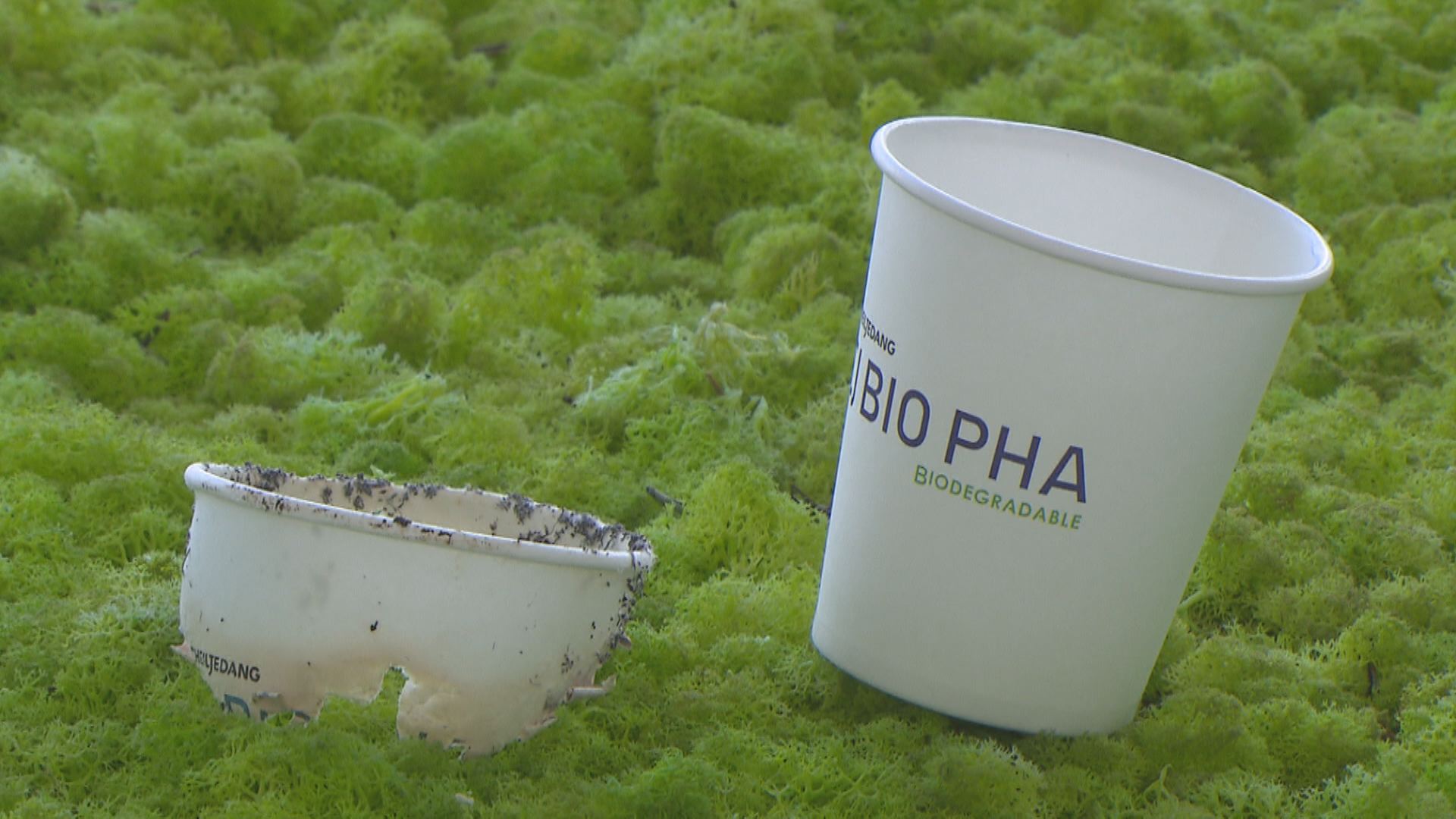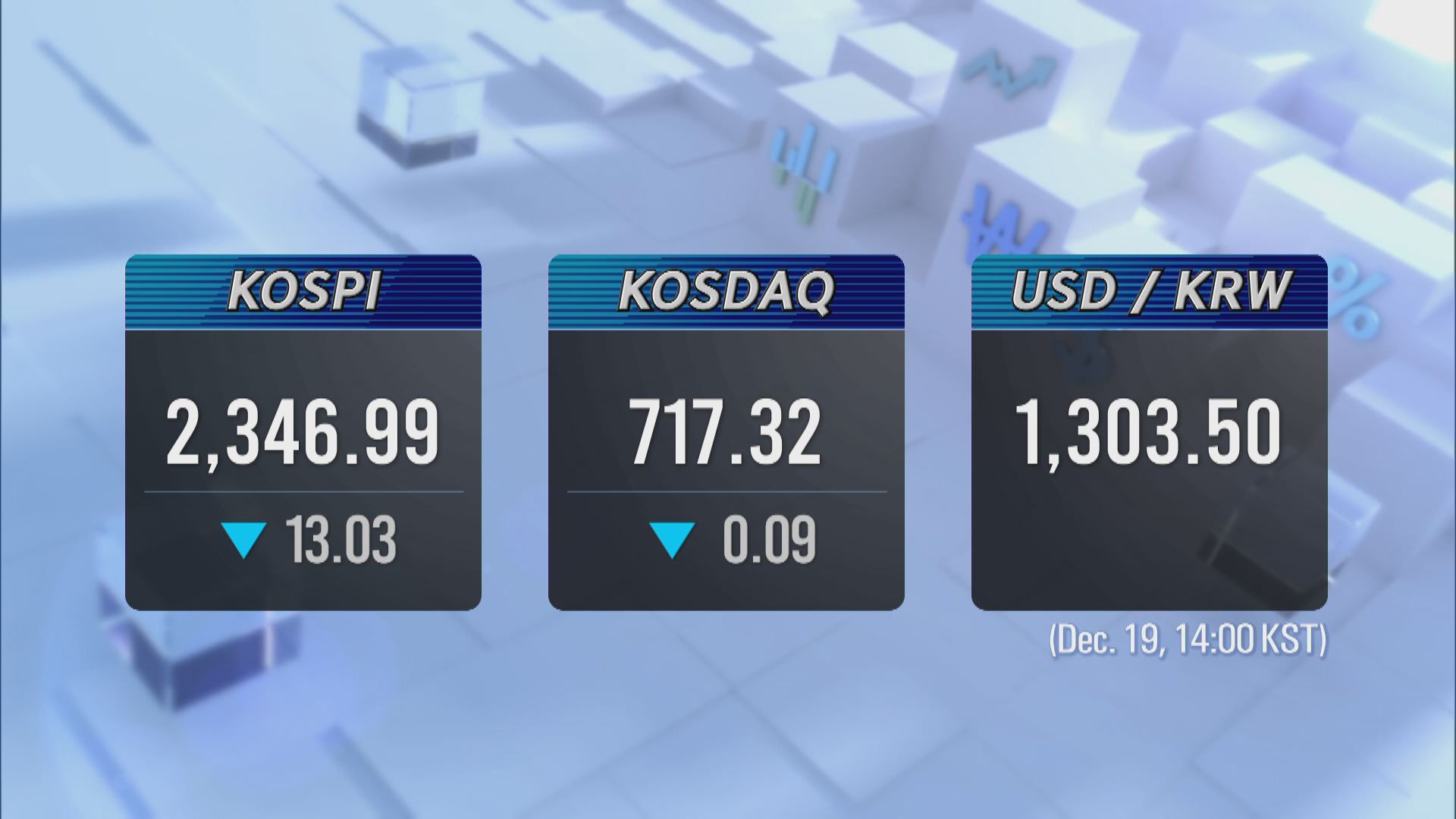DEVELOPMENT OF BIOPLASTICS GAINS SPEED
입력 2022.12.19 (14:57)
수정 2022.12.19 (16:45)
읽어주기 기능은 크롬기반의
브라우저에서만 사용하실 수 있습니다.
[Anchor Lead]
South Korea ranked third in generating global plastic waste per person as of 2016, generating a whopping amount of 88 kilograms of plastic waste per person. One of the key challenges we face in battling environmental threats is dealing with non-biodegradable plastics. That is why researchers are speeding up efforts to develop technologies that can decompose bio-degradable plastics using plants or microorganisms, but challenges still lie ahead.
[Pkg]
Never-ending strings of plastic. This is biodegradable plastic extracted from E.coli by a Korean conglomerate. Bio-degradable plastics decompose into water and carbon dioxide under certain conditions. An experiment shows that after 11 weeks in seawater they were more than half-decomposed. It's the first development of plastics that decompose not only in soil but in seawater as well. They are as durable as conventional plastics.
[Soundbite] Lee Eun-hye(CJ CheilJedang) : "We are developing various combination technologies, so consumers cannot tell the difference between biodegradable and conventional plastics."
This company extracts plastic material from corn starch. As a plant-based material, it is believed to help speed decomposition when mixed with biodegradable plastics.
[Soundbite] Chang Jae-soo(Samyang Innochem) : "When isosorbide is added to existing biodegradable plastics, their decomposition improves by up to 20%."
Three years from now the bioplastic market is predicted to reach 34 trillion won as demand for eco-friendly materials grows. However, there are obstacles to overcome. Korea has no guidelines or facilities for collecting biodegradable plastics. International certifications can only be applied for at overseas institutions.
[Soundbite] Prof. Hwang Seong-yeon(KyungHee Univ.) : "Currently consumers have no choice but to discard biodegradable plastics in garbage bags to have them incinerated."
The government plans to carry out a pilot project for collecting biodegradable plastics and create conditions for domestic businesses to apply for international certifications within Korea.
South Korea ranked third in generating global plastic waste per person as of 2016, generating a whopping amount of 88 kilograms of plastic waste per person. One of the key challenges we face in battling environmental threats is dealing with non-biodegradable plastics. That is why researchers are speeding up efforts to develop technologies that can decompose bio-degradable plastics using plants or microorganisms, but challenges still lie ahead.
[Pkg]
Never-ending strings of plastic. This is biodegradable plastic extracted from E.coli by a Korean conglomerate. Bio-degradable plastics decompose into water and carbon dioxide under certain conditions. An experiment shows that after 11 weeks in seawater they were more than half-decomposed. It's the first development of plastics that decompose not only in soil but in seawater as well. They are as durable as conventional plastics.
[Soundbite] Lee Eun-hye(CJ CheilJedang) : "We are developing various combination technologies, so consumers cannot tell the difference between biodegradable and conventional plastics."
This company extracts plastic material from corn starch. As a plant-based material, it is believed to help speed decomposition when mixed with biodegradable plastics.
[Soundbite] Chang Jae-soo(Samyang Innochem) : "When isosorbide is added to existing biodegradable plastics, their decomposition improves by up to 20%."
Three years from now the bioplastic market is predicted to reach 34 trillion won as demand for eco-friendly materials grows. However, there are obstacles to overcome. Korea has no guidelines or facilities for collecting biodegradable plastics. International certifications can only be applied for at overseas institutions.
[Soundbite] Prof. Hwang Seong-yeon(KyungHee Univ.) : "Currently consumers have no choice but to discard biodegradable plastics in garbage bags to have them incinerated."
The government plans to carry out a pilot project for collecting biodegradable plastics and create conditions for domestic businesses to apply for international certifications within Korea.
■ 제보하기
▷ 카카오톡 : 'KBS제보' 검색, 채널 추가
▷ 전화 : 02-781-1234, 4444
▷ 이메일 : kbs1234@kbs.co.kr
▷ 유튜브, 네이버, 카카오에서도 KBS뉴스를 구독해주세요!
- DEVELOPMENT OF BIOPLASTICS GAINS SPEED
-
- 입력 2022-12-19 14:57:15
- 수정2022-12-19 16:45:05

[Anchor Lead]
South Korea ranked third in generating global plastic waste per person as of 2016, generating a whopping amount of 88 kilograms of plastic waste per person. One of the key challenges we face in battling environmental threats is dealing with non-biodegradable plastics. That is why researchers are speeding up efforts to develop technologies that can decompose bio-degradable plastics using plants or microorganisms, but challenges still lie ahead.
[Pkg]
Never-ending strings of plastic. This is biodegradable plastic extracted from E.coli by a Korean conglomerate. Bio-degradable plastics decompose into water and carbon dioxide under certain conditions. An experiment shows that after 11 weeks in seawater they were more than half-decomposed. It's the first development of plastics that decompose not only in soil but in seawater as well. They are as durable as conventional plastics.
[Soundbite] Lee Eun-hye(CJ CheilJedang) : "We are developing various combination technologies, so consumers cannot tell the difference between biodegradable and conventional plastics."
This company extracts plastic material from corn starch. As a plant-based material, it is believed to help speed decomposition when mixed with biodegradable plastics.
[Soundbite] Chang Jae-soo(Samyang Innochem) : "When isosorbide is added to existing biodegradable plastics, their decomposition improves by up to 20%."
Three years from now the bioplastic market is predicted to reach 34 trillion won as demand for eco-friendly materials grows. However, there are obstacles to overcome. Korea has no guidelines or facilities for collecting biodegradable plastics. International certifications can only be applied for at overseas institutions.
[Soundbite] Prof. Hwang Seong-yeon(KyungHee Univ.) : "Currently consumers have no choice but to discard biodegradable plastics in garbage bags to have them incinerated."
The government plans to carry out a pilot project for collecting biodegradable plastics and create conditions for domestic businesses to apply for international certifications within Korea.
South Korea ranked third in generating global plastic waste per person as of 2016, generating a whopping amount of 88 kilograms of plastic waste per person. One of the key challenges we face in battling environmental threats is dealing with non-biodegradable plastics. That is why researchers are speeding up efforts to develop technologies that can decompose bio-degradable plastics using plants or microorganisms, but challenges still lie ahead.
[Pkg]
Never-ending strings of plastic. This is biodegradable plastic extracted from E.coli by a Korean conglomerate. Bio-degradable plastics decompose into water and carbon dioxide under certain conditions. An experiment shows that after 11 weeks in seawater they were more than half-decomposed. It's the first development of plastics that decompose not only in soil but in seawater as well. They are as durable as conventional plastics.
[Soundbite] Lee Eun-hye(CJ CheilJedang) : "We are developing various combination technologies, so consumers cannot tell the difference between biodegradable and conventional plastics."
This company extracts plastic material from corn starch. As a plant-based material, it is believed to help speed decomposition when mixed with biodegradable plastics.
[Soundbite] Chang Jae-soo(Samyang Innochem) : "When isosorbide is added to existing biodegradable plastics, their decomposition improves by up to 20%."
Three years from now the bioplastic market is predicted to reach 34 trillion won as demand for eco-friendly materials grows. However, there are obstacles to overcome. Korea has no guidelines or facilities for collecting biodegradable plastics. International certifications can only be applied for at overseas institutions.
[Soundbite] Prof. Hwang Seong-yeon(KyungHee Univ.) : "Currently consumers have no choice but to discard biodegradable plastics in garbage bags to have them incinerated."
The government plans to carry out a pilot project for collecting biodegradable plastics and create conditions for domestic businesses to apply for international certifications within Korea.
이 기사가 좋으셨다면
-
좋아요
0
-
응원해요
0
-
후속 원해요
0














![[단독] 골프연습장 아니라더니<br>…‘한남동 골프연습장’ 도면 입수](/data/news/2025/07/01/20250701_Uh8Jnu.png)


이 기사에 대한 의견을 남겨주세요.